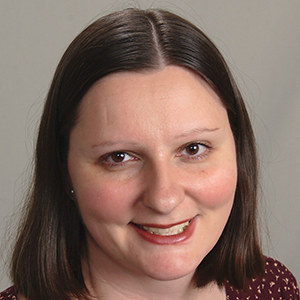Steps for getting started in science policy
According to Wikipedia, “Science policy is concerned with the allocation of resources for the conduct of science towards the goal of best serving the public interest.” Working in policy offers an opportunity to contribute to and influence the landscape of issues you care about. Your work, in turn, can help you establish a reputation and provide credibility as you embark on this new career path.

Here are some steps to take if you want to enter a career in science policy:
- Choose a policy issue that you are passionate about or something that you want to change.
- Make your specific interest known in the policy community and start to build experiences around your issue that will get you noticed.
- Volunteer with organizations working on this issue, and offer to write blog posts for them or join a committee.
- Once you are on a committee, try to move up into leadership roles and learn from those at the top of your organization.
- Network with professionals who are in positions you might want to apply for one day, and don’t be afraid to apply for opportunities that interest you.
Science policy comes in many forms and flavors, and policy work is done in several sectors. Some policy positions involve advocacy and pushing priorities, whereas others inform policy but do not include lobbying. Shifting from one sector to another is an acceptable and encouraged practice. For example, you can work in government or at think tanks, nonprofits or universities. Of course, Capitol Hill is where all the action is. Many of these roles provide opportunities to interact with Hill staff.
Science policy is a fast-paced field. You must be able to shift quickly between priorities and projects, sometimes in response to what’s going on that week in federal policy. This can be stressful for individuals trained as scientists who are used to planning their work ahead of time and going deeply into a single topic. In policy jobs, you often scratch the surface of many topics on any given day. But the variety is interesting, and it is exciting to work on policy issues in real time.
Resources for getting started in science policy can be found on the ASBMB Advocacy page. Other resources include newsletters such as AIP FYI produced by the American Institute of Physics; relevant organizations such as the American Association for the Advancement of Science or the National Academies of Sciences, Engineering and Medicine; and listings such as the Genetics Society of America policy fellowships database. Additionally, the Journal of Science Policy & Governance provides opportunities to develop your skills in policy research and writing, which are essential for any policy career.
(Read about Adriana Bankston’s career journey in science policy here and here.)
Enjoy reading ASBMB Today?
Become a member to receive the print edition four times a year and the digital edition monthly.
Learn moreFeatured jobs
from the ASBMB career center
Get the latest from ASBMB Today
Enter your email address, and we’ll send you a weekly email with recent articles, interviews and more.
Latest in Careers
Careers highlights or most popular articles

Upcoming opportunities
ASBMB's PROLAB award helps graduate students and postdoctoral fellows spend up to six months in U.S. or Canadian labs.

From humble beginnings to unlocking lysosomal secrets
Monther Abu–Remaileh will receive the ASBMB’s 2026 Walter A. Shaw Young Investigator Award in Lipid Research at the ASBMB Annual Meeting, March 7-10 in Washington, D.C.

Chemistry meets biology to thwart parasites
Margaret Phillips will receive the Alice and C. C. Wang Award in Molecular Parasitology at the ASBMB Annual Meeting, March 7-10 in Washington, D.C.

Decoding how bacteria flip host’s molecular switches
Kim Orth will receive the Earl and Thressa Stadtman Distinguished Scientists Award at the ASBMB Annual Meeting, March 7–10, just outside of Washington, D.C.

Defining JNKs: Targets for drug discovery
Roger Davis will receive the Bert and Natalie Vallee Award in Biomedical Science at the ASBMB Annual Meeting, March 7–10, just outside of Washington, D.C.

Upcoming opportunities
No matter where you are in your career and what future path you aspire to, everyone needs leadership skills. Join ASBMB for practical strategies for building and practicing leadership skills.

